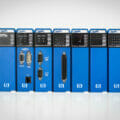~ The benefits of moderation in plant technology ~
The rise of connected industrial technologies and Industry 4.0 has prompted the development and launch of countless systems with extensive capabilities and functions. This is often beneficial for businesses with a defined and set long-term strategy, but it can lead to forcing early adoption and spending when deployments and licensing outstrip a company’s capacity to change work processes ad adopt new tech. Here, Sean Robinson, software solutions manager at Novotek UK and Ireland, explains how less can be more with new plant tech deployments – and why immediate problem-solving needs to be a distinct effort within longer-term strategies.
Countless proverbs, maxims and quotes have been formed around the idea of moderation, dating back as far as – or even further than – Ancient Greek society. The notion remains important to this day for everything from diet to technology. However, engineers and plant managers frequently over-indulge in the latter and over-specify systems that offer functionality well beyond what is necessary or even practically useful.
It can initially appear that there is no harm in opting for an automation or plant IT system that has extensive functionality, because this may help to solve future problems as they arise. That being said, an investment, positioned to be all-encompassing, like a full, manufacturing execution system (MES) can sometimes present its own barriers to adoption for certain businesses, especially those in sectors that favour flexibility, such as fast-moving consumer goods (FMCG) or food manufacturing.
Where core production processes and related enabling technology are well-established, it can be risky, expensive and overkill to treat the need to implement specific new capabilities as the trigger for wholesale replacement or re-working. The key is to identify where critical new functional needs can be implemented around the installed technology base in focused ways that deliver results, while leaving open the option of incrementally adding functionally-focused solutions in a staged way, over time. At Novotek, our role is to help our customers choose technology that delivers on an immediate need, while opening up the potential to build incrementally in a controlled, low-risk way.
Fortunately, both the licensing models and the technical architectures of plant IT solutions are changing in ways that support this kind of approach. So, the software cost and deployment services costs of bringing on board very specific capabilities can be scaled to match the user base, and the technical and functional boundaries of a specific need. We can think of these focused deployments as “micro-apps”. A key part of this approach is that the apps aren’t built as bespoke, or as an extension of a legacy (and possibly obsolete) system. It’s a productised solution – with only the “right” parts enabled and delivered to the right stakeholders.
Consider quality in toiletry production, and specifically challenges with product loss due to variability in the quality of raw materials, as an example. It’s safe to assume that a plant will already have local control systems in place elsewhere to track the overall quality outcomes, but monitoring the raw material quality is often left to supplier-side data that may be under-used – serving as a record of supplier compliance with a standard, rather than being used to proactively trigger adjustments in key process settings to avoid losses.
In this scenario, an ideal micro-app could be focused on captured raw material data, using machine learning to provide deep analysis of how existing machines can best process the material lot and alerting supervisors and process owners to take action. Such a function might have a small number of users; it might even have integration with inventory or quality systems replacing some manual data entry. So, the software licensing and services and timelines to deliver impact can be kept small. When we consider some of the demands manufacturers now face on fronts ranging from qualifying new supplier/materials, to furthering energy and water reduction, to adopting more predictive maintenance and asset management strategies, we see a lot of potential to tackle these with focused solutions that happen to borrow from the underlying depth and breadth of MES solutions.
There are unquestionably many cases where a plant-wide solution like an MES is necessary or even preferable. We and our key technology and services partners have delivered many such “complete” systems across the country. However, it should certainly not be considered the only option for agile industrial businesses. If each factory can be thought of as a collection of work processes/functions that need to be delivered, then implementing the supporting/enabling technology as a collection of micro-apps can make sense. And when balancing risk, cost and speed to value, sometimes, moderation in plant technology deployments can provide the most bountiful benefits.
Novotek Solutions is an advanced industrial IT and automation solutions company providing world class hardware and software to a range of manufacturing, process and production sectors. To discover more, visit novotek.co.uk.








